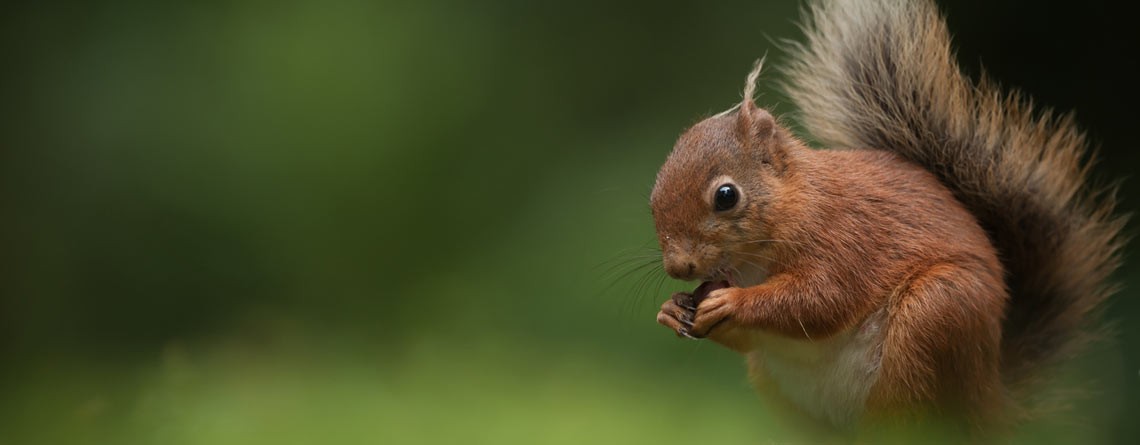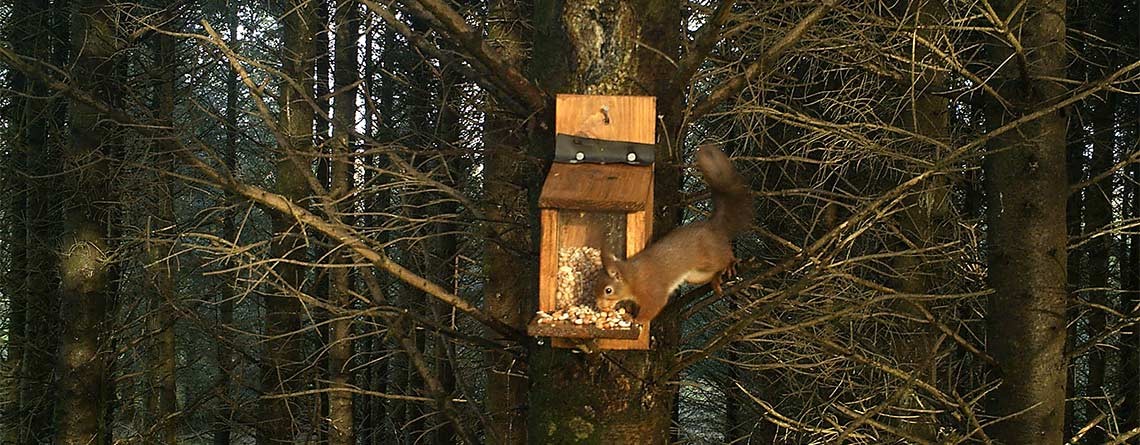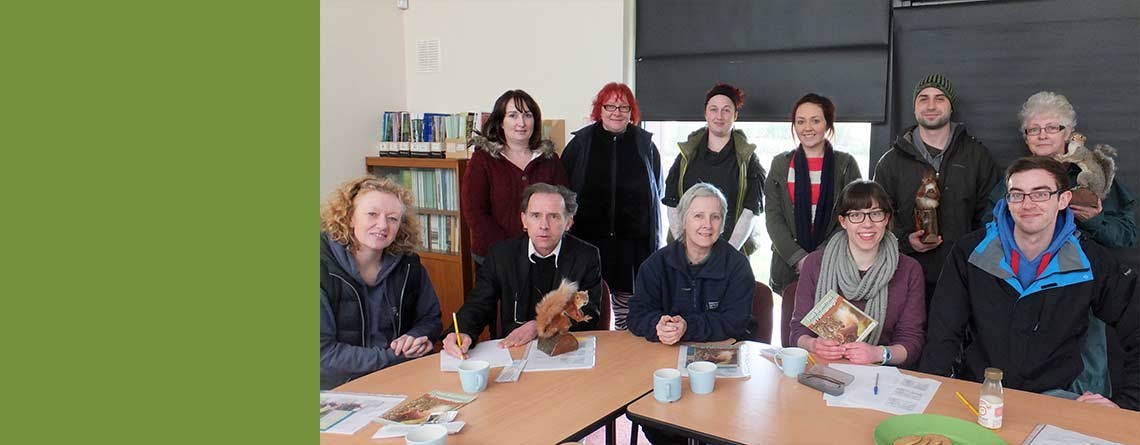-
The Fermanagh Red Squirrel Group (FRSG) was established to assist in the conservation of the red squirrel in the county, the most westerly in Northern Ireland.
-
The Red Squirrel is one of 15 species highlighted for action in Fermanagh District Council’s Local Biodiversity Action Plan.
-
There are many ways to get involved in Red Squirrel conservation including supplementary feeding, reporting sightings and becoming a member of FRSG.
Sightings
 In the effort to conserve red squirrel populations, knowing where both red and grey squirrel populations occur is crucial. Reporting sightings of both squirrels in Fermanagh or any part of the country is essential to this.
In the effort to conserve red squirrel populations, knowing where both red and grey squirrel populations occur is crucial. Reporting sightings of both squirrels in Fermanagh or any part of the country is essential to this.
Go to Sightings
Get involved
 There are many ways to get involved in red squirrel conservation. It can start with getting out and trying to catch a glimpse of these shy creatures or making a donation to the FRSG, which will be used to support the work we do.
There are many ways to get involved in red squirrel conservation. It can start with getting out and trying to catch a glimpse of these shy creatures or making a donation to the FRSG, which will be used to support the work we do.
How to Get Involved
Squirrel facts
 We have information covering all you need to know about the red squirrel (Sciurus vulgaris), our only native squirrel - its history, its ecology, what threatens its survival as well as the legislation that protects it.
We have information covering all you need to know about the red squirrel (Sciurus vulgaris), our only native squirrel - its history, its ecology, what threatens its survival as well as the legislation that protects it.
Read some Squirrel Facts
The Fermanagh Red Squirrel Group (FRSG) was established to assist in the conservation of the red squirrel in the county, the most westerly in Northern Ireland.
We are fortunate in that of the six Red Squirrel Preferred Areas (RSPA) in Northern Ireland, two occur in the county. These areas are broadly in West Fermanagh and East Fermanagh, corresponding with large plantations of conifer trees, managed by the Forest Service Northern Ireland.
While conifer plantations are now their refuge, the red squirrel continues to maintain a presence in their preferred habitat, broadleaved woodlands where oak and hazel provide for much of their dietary needs.
Broadleaved woodland can be found across the county, on privately-owned estates or sites managed by organisations such as the National Trust. Red squirrels are also regularly reported as visiting domestic gardens in the county which occur in the vicinity or backing-onto a woodland or forest.



